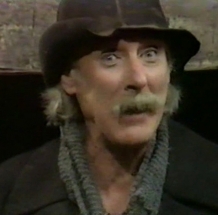|
Estevan -> RE: modern vs traditional (Dec. 20 2009 8:18:31)
|
quote:
just another thing, i learnt some tarantas ages ago that came from Sabicas, and there was a G7flat5 chord in it, which on it's own just looked and sounded (ie the shape and voicing) like a jazz chord to me, in fact i had no idea what the hell it was 'til i found it in a book of jazz chord shapes. but it fitted in the falseta perfectly so as you wouldn't have really noticed (at least to my ears at the time).
2nd finger plays note of G, 3rd fret, 6th string;
damp 5th string;
3rd finger plays note of F, 3rd fret, 4th string;
4th finger plays note of B, 4th fret, 3rd string;
1st finger plays note of Db (or C#, but that would be a sharpened 4th ), 2nd fret, 2nd string;
damp 1st string;
brilliant!
so i don't think borrowing from jazz is particularly new, in fact it starts to look like there's actually a tradition of it[:D]
Nice chord! As you seem to suggest, context is important. In jazz, it sounds like a jazz chord; in flamenco, it sounds flamenco. It can come about quite naturally in standard traditional tarantas falsetas approaching a cadence; all the notes - G in the bass, E#, B and C# (along with F# and G) in the melodic lines - are in the typical phrases, and if you put them together, there's that chord.
That chord (known as a 'French sixth') is very common in 19th century music. It's not usual in 19th century music to voice it with the sharp fourth (C# in this case) in the top voice, but Chopin (for example) did it in 1841. So there's nothing inherently 'jazzy' or 'modern' about the chord itself (or lots of other chords), it all depends on the context.
quote:
but neither does it make the resultant musical phrase or falseta "jazz" because it uses a chord also used by jazz musicians, - any more than the jazz is 'classical' by the same analogy - [;)]
And this supports what Ricardo said above about flamenco evolving on its own without necessarily borrowing from other types of music. Yes, it certainly borrows (and sometimes indulges in daylight robbery - e.g. opening of 'Solo quiero caminar' or 'Ziryab'), but something that, taken out of context, may appear to be from somewhere else (like Sabicas's chord) may have arisen completely within the flamenco context without reference to any other kind of music.
quote:
any more than using tremelo or arpegio borrowed from classical guitar makes a falseta "classical"
Quite so.
[8|][:D]
|
|
|
|

